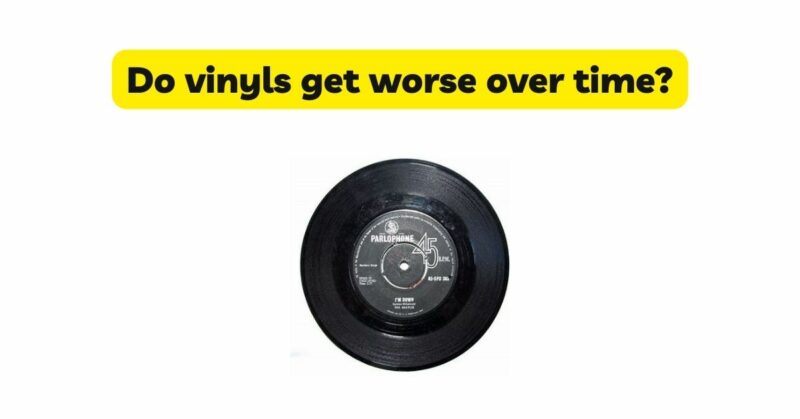Vinyl records have stood the test of time, captivating generations of music enthusiasts with their warm sound and tangible appeal. However, a common misconception is that vinyl records degrade and worsen in quality over time. In this article, we will dispel this myth and explore why vinyl records are remarkably durable and can maintain their pristine condition for decades when properly cared for. By understanding the factors that contribute to the longevity of vinyl records, collectors can confidently enjoy their collections and preserve their sound quality for future generations.
Vinyl Composition: Vinyl records are made from polyvinyl chloride (PVC), a highly durable and long-lasting material. PVC has excellent chemical stability, making it resistant to environmental factors such as humidity and temperature fluctuations. Vinyl records are designed to withstand years of playback without significant degradation or loss of quality.
Inherent Stability of the Medium: Vinyl records are engineered to be stable and resistant to the effects of time. When properly stored and handled, vinyl records can retain their original sound quality for decades. The grooves on the record surface, where the audio information is stored, are physically engraved and not subject to decay or deterioration over time.
Proper Storage: The way vinyl records are stored plays a crucial role in their long-term preservation. Storing records upright in a cool, dry, and stable environment is key to maintaining their condition. Avoid exposing records to direct sunlight, extreme temperatures, and high humidity, as these factors can potentially damage the vinyl and affect sound quality. With proper storage, vinyl records can remain in excellent condition for a lifetime.
Regular Cleaning: Regular cleaning of vinyl records is essential for maintaining their sound quality. Dust, dirt, and oils can accumulate on the record surface, affecting playback and potentially causing damage over time. Using a record cleaning brush or a record cleaning machine, along with a suitable cleaning solution, can effectively remove contaminants and ensure optimal playback performance.
Proper Handling: Proper handling of vinyl records is crucial to avoid unnecessary wear and tear. Always hold records by their edges and avoid touching the playing surface to prevent fingerprints, oils, and debris from affecting sound quality. Place records gently onto the turntable platter and avoid dropping or mishandling them, as physical damage can compromise playback and sound quality.
Quality Playback Equipment: Using high-quality playback equipment, including a well-maintained turntable, cartridge, and stylus, is vital for preserving the integrity of vinyl records. A worn-out or misaligned stylus can cause excessive wear on the record surface and result in diminished sound quality over time. Regular maintenance and proper setup of the playback equipment ensure accurate tracking and minimal wear on the record grooves.
Avoidance of Excessive Playback: Excessive playback of vinyl records can contribute to wear and tear, especially if done with a worn-out stylus or improper tracking force. While vinyl records are designed for repeated playback, moderation is key to preserving their longevity. Limiting playback and ensuring proper care and maintenance of the equipment can help extend the lifespan of vinyl records.
Avoiding Scratches and Surface Damage: Preventing scratches and surface damage is crucial for maintaining the sound quality of vinyl records. Proper handling techniques, using inner and outer protective sleeves, and avoiding abrasive cleaning methods can help minimize the risk of scratches. By taking these precautions, collectors can preserve the integrity of their records and prevent any potential deterioration over time.
Vinyl Reissues and Remastering: In recent years, there has been a resurgence of vinyl reissues and remastered releases. These releases often involve careful restoration and high-quality mastering techniques, resulting in vinyl records that sound as good as or even better than their original counterparts. These new pressings provide an opportunity to enjoy classic albums with improved sound quality while preserving the original vinyl records for posterity.
Conclusion: Contrary to popular belief, vinyl records do not get worse over time. With proper care, storage, handling, and maintenance, vinyl records can retain their original sound quality and aesthetic appeal for decades. The durability and resilience of vinyl as a medium, coupled with careful handling and playback on high-quality equipment, ensure that vinyl records remain an enduring form of musical enjoyment. By following these guidelines, collectors can continue to revel in the warmth and authenticity of vinyl recordings for years to come.


